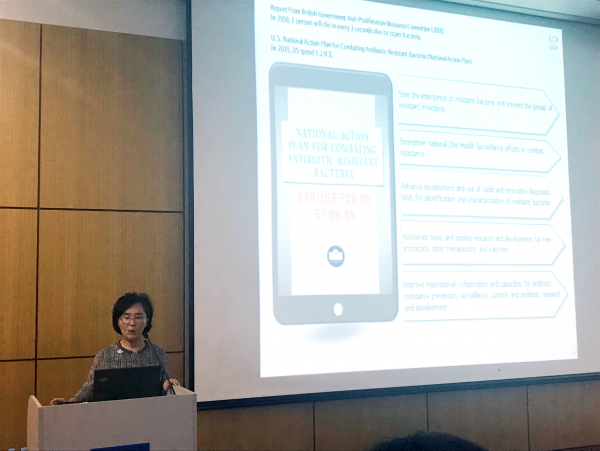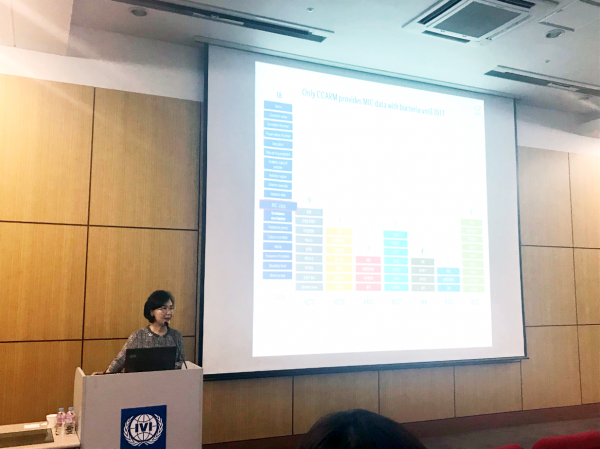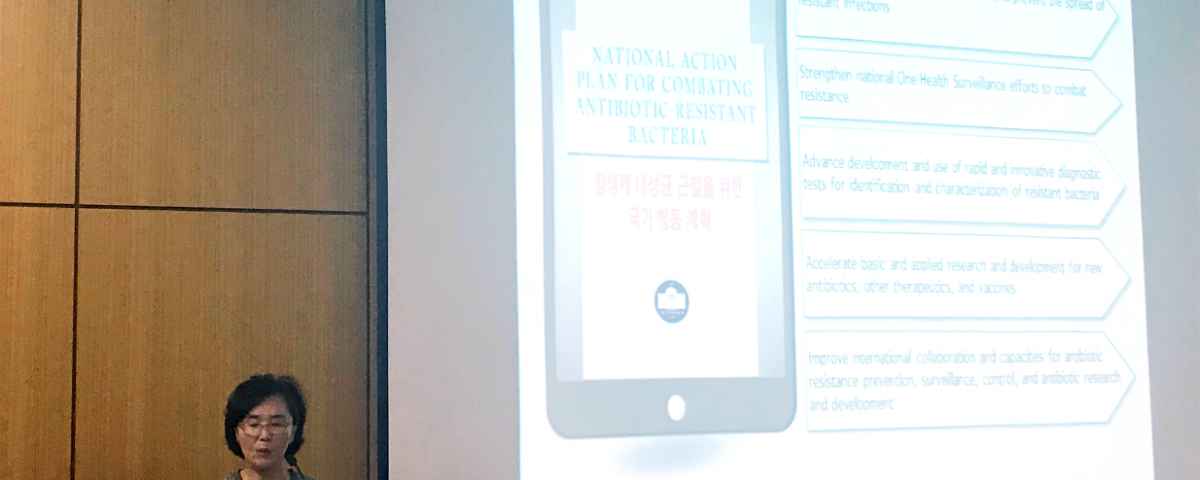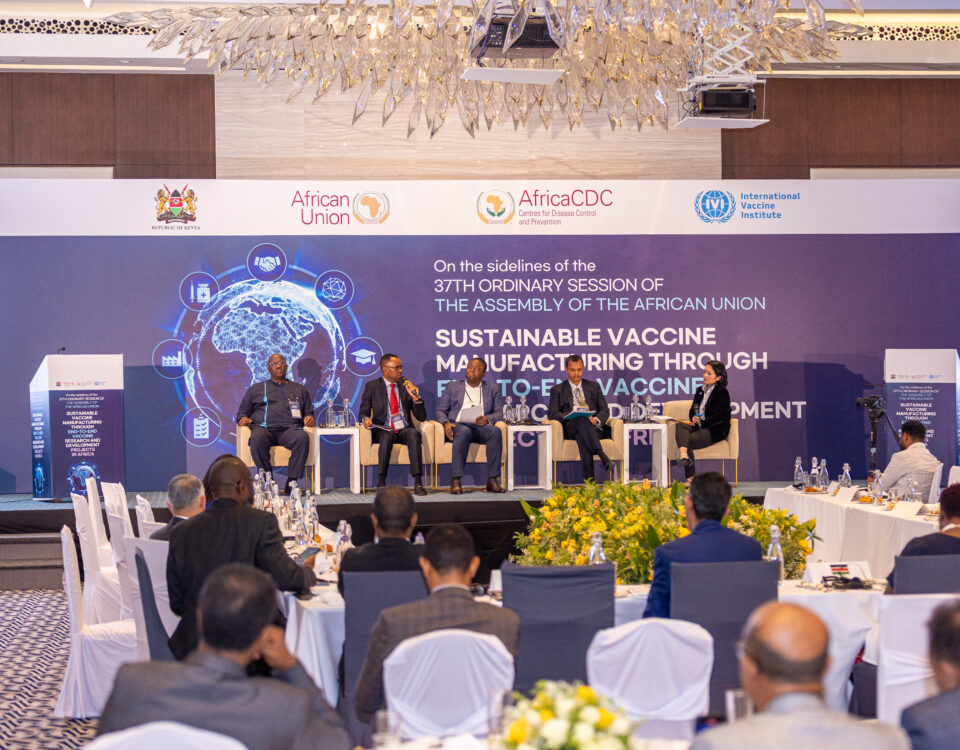 Prof. Yeonhee Lee gives talk on ‘Culture Collection of Antimicrobial Resistant Microbes’
Prof. Yeonhee Lee gives talk on ‘Culture Collection of Antimicrobial Resistant Microbes’
July 1, 2019 – SEOUL, South Korea. Prof. Yeonhee Lee, PhD, a professor at Seoul Women’s University and President of the Microbiological Society of Korea, delivered a lecture entitled: “Culture Collection of Antimicrobial-Resistant Microbes” on July 1, 2019 at IVI headquarters. The lecture was conducted as part of the 2019 IVI Seminar Series: The Present and Future of Vaccine Development, which was made possible by the Chong Kun Dang Kochon Foundation.

Prof. Yeonhee Lee presenting ‘Culture Collection of Antimicrobial Resistant Microbes’
Abstract
Title: Culture Collection of Antimicrobial-Resistant Microbes
Treatment for disease caused by antimicrobial-resistant microbes has emerged as a critical issue worldwide. The abuse of antimicrobial drugs in clinical environments as well as in the agricultural industry has led to a high rate of occurrence of antimicrobial-resistant microbes. There is a demand for communication and cooperation among researchers in diverse fields in order to resolve the issue of antimicrobial resistance. The Culture Collection of Antimicrobial-Resistant Microbes (CCARM) initiative began in Korea in 1999 and has been supported by of the Ministry of Science and ICT as well as by the National Research Foundation of Korea (NRF). At present, CCARM has established the collection of antimicrobial-resistant microbes from patients, domestic animals, commercial products, and various environments. These microorganisms are then identified, preserved, and catalogued along with information including origins, species, MICs, and their specific resistance mechanisms to various antimicrobials. To date, CCARM has resulted in the collection of over 26,618 strains of bacteria and yeast from 68 genera, and 180 species. The CCARM initiative has been an activity of: the Clinical Laboratory Standards Institute (CLSI) since 2000, the World Federation for Culture Collection & World Data Center for Microorganisms (WFCC-WDCM) since 2003, ISBER (International Society of Biological and Environmental Repositories) since 2007, Korea National Research Resource Center (KNRRC) since 2008, and Biological Repositories since 2009. We expect to progress further by following ISO guidelines (ISO 20387, ISO CD 21710, etc.), thereby introducing internationally accepted operation and management techniques.



 Prof. Yeonhee Lee gives talk on ‘Culture Collection of Antimicrobial Resistant Microbes’
Prof. Yeonhee Lee gives talk on ‘Culture Collection of Antimicrobial Resistant Microbes’
